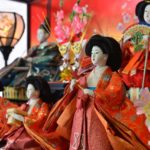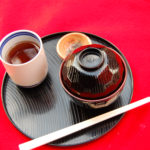「 年別アーカイブ:2017年 」 一覧
-

-
8 Different Types of Japanese School Uniform: Unique History and Design
2017/12/28 japanese, culture, school uniform, fashion, school
Let's learn about Japanese Seifuku (School Uniform)! Japanese school uniform is known for its fashionable appearance. Most schools in Japan have their uniforms, and the design varies depending on the school. For Japanese students, school uniform is not only for showing which school a person belongs to. It has become one of the fashion items due to the change of school uniform designs and fashion trends. Many Japanese school girls add accessories to their uniform to express their originality. Now, you will see how Japanese school uniform has been developed and changed over time, and how Japanese students enjoy their ...
-

-
Hinamatsuri - Japanese Dolls Festival for Girls
2017/12/27 japanese, culture, hinamatsuri
Traditional Japanese Doll Festivel "Hinamatsuri" Hinamatsuri is one of the annual events in Japan taken place on March 3rd, which has a long history back in as early as 10th century. As Hinamatsuri is also referred to Girl's day, families pray for the good fortune, health, and growth of the girls. Here you will enjoy the traditional custom of Japan with the exploration of the origin, practices, and food of Hinamatsuri. What is Hinamatsuri? Hinamatsuri, also called Doll festival or Girl's festival is a festival when people pray for health, growth, and happiness of girls. It takes place on March ...
-

-
25 Common Japanese Desserts that Amaze You
Top 25 Traditional Japanese Desserts: Wagashi! Few people might associate Japanese food with its desserts, but Japan has a wide variety of desserts from traditional Japanese sweets so-called Wagashi, to Western-influenced Japanese sweets. Japanese people are actually a big fan of desserts from small kids to adults, as much as they have a phrase "betsu-bara", or "second stomach", which means they can still have room for desserts even when their stomach is already full. Japanese were making sweets long before sugar had arrived to Japan. They created desserts using ingredients available to them, such as mochi, anko (sweet red bean ...